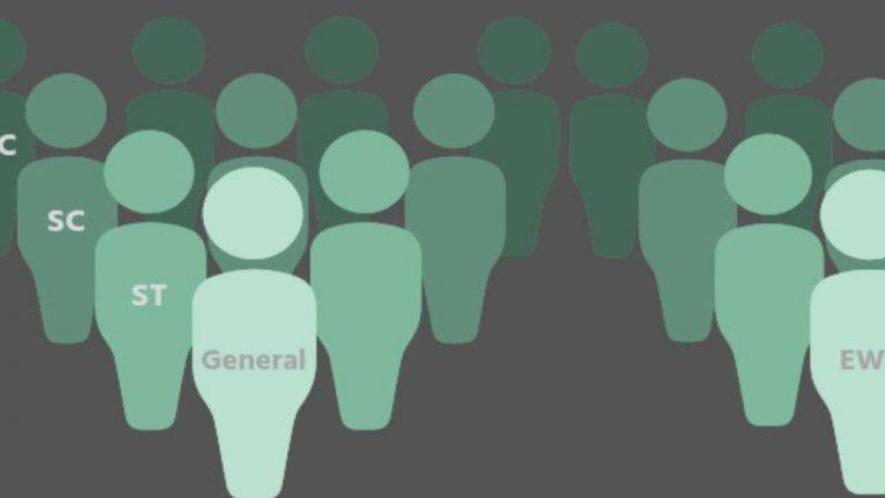Political Ramifications of SC/ST Sub-Classification

Much of the debate around the Supreme Court judgment on sub-classification of Scheduled Castes and Scheduled Tribes (SCs/STs) has been either legal/constitutional or procedural. However, the key question really is about the nature of politics and the impact on democratic processes -- both electoral and otherwise.
It is clear that sub-classification will certainly lead to material redistribution of opportunities within the SCs and STs. The data is very clear that certain sub-castes within the Dalits got a greater proportion of benefits in relation to their population, and in comparison, to other sub-castes.
With regard to the OBC (Other Backward Classes) reservations, there was already the criterion of ‘creamy layer’ with an income cap of Rs 8 lakh per annum.
However, what is uncertain is the political consequences. Will it lead to strengthening of democratic processes and greater participation or garner greater consent for civil strife, ipso facto, benefitting, Right-wing populism?
Sub-classification brings forth the complexity of social contradictions. While it allows for internal redistribution, which is a necessary mode of social and economic democratisation, it also weakens the social identities of being a Dalit or a tribal. The political sociology of inequalities will tell us it not only weakens the identity but weakens those sections within SCs and STs that are in a position to resist and mobilise.
The sub-classification may hold the potential to convert the Dalit versus caste Hindu conflict into intra-subaltern conflict. The focus could be fixated on ‘internal’ hegemone, as against the external dominant castes. The worry many Dalit-Bahujan activists would have is whether this will reinforce caste Hindu domination? Will this not benefit the BJP-RSS (Bharatiya Janata Party-Rashtriya Swayamsevak Sangh) brand of politics?
The Dalit-Bahujans are also raising the question of internal hierarchies within the dominant castes. What about the fact that dynasty/family inheritance flows within families belonging to the dominant castes? Is this comparable to the families that have benefited over a couple of generations within the SCs and STs? Would it be true to say EWS (economically weaker sections) reservations have taken care of this problem? EWS never raised the question of benefits being ‘cornered` by specific sub-castes within Brahmins or Rajputs. We, in fact, have no such data available.
Further, reservations were pursued not as an affirmative action policy, like the United States, but as a quota. There are a fixed number of seats. Reservations for SCs were based on the practice of untouchability and social discrimination.
Reservations were not an economic policy. Dalits have not yet overcome discrimination, stigma and prejudice, so how is it justified to `reduce` opportunities to certain sub-castes that have so far benefitted. Sub-classification will not allow elite and class formation among the Dalits but caste Hindu social elites go unquestioned.
The only route left to the relatively better off sub-castes within the Dalits and tribals will be to move to the private sector, just the way caste Hindus did three decades ago. This model of economic sanskritisation being thrust on them will lead to the demand for reservations in the private sector. Many state governments, like Haryana and Karnataka, have attempted for reservations to local residents in the private sector. Many private companies reject this idea but state governments are pursuing it.
The fact of the matter is, any provision for reservations on any other ground other than caste will exclusively benefit the caste Hindus. How many SCs and STs have benefitted from reservations in sports quota in jobs and educational institutions?
This is not to say that sub-classification is not necessary. It will be a game-changer in terms of creating opportunities for numerically smaller, social and economically vulnerable sub-castes within the Dalits and the tribals. Dominant sub-castes, such as Mahars, Malas, and Jatavs in SCs and Meenas and Lambadas in STs, will have reduced opportunities. This is undoubtedly a step toward social democratisation and perhaps a necessary one, but a skewed one. Its political outcomes are far more uncertain than a plain process of democratisation.
Weakening of the position of the dominant sub-castes might lead them to align with the Right. Sub-classification will create large-scale vulnerability, even as it spreads democratisation and equality of opportunities. The larger Dalit identity will yield space to political mobilisation shifting to independent sub-castes.
Will anti-caste politics be able to forge larger solidarities, even as they experience internal divisions? Or will internal divisions submerge the conflict with dominant caste Hindus?
There is a clear possibility of vulnerability leading to greater integration into the Hindu fold. This is a phenomenon that seems unique to a society marked by graded inequalities, where greater fragmentation will lead to greater unification around a common Hindu identity. A socially conservative outcome of sub-classification cannot be ruled out at this stage.
The other, weaker, possibility, is a realisation by the marginalised groups that sub-classification will lead to only marginal benefits, given the rampant privatisation of education and jobs. It might also, therefore, bring the poor among caste Hindus closer, politically speaking, to those in Dalits and STs. Of course, this option would have caste prejudices as a major roadblock, but will shrinking opportunities and clarity over skewed distribution of resources make this instinct weaker?
If this were to happen with active social mobilisation by various activist initiatives, this will be a tectonic shift that will pose a stiff challenge to the politics of the BJP-RSS. Congress taking a lead on the caste census has already mainstreamed this possibility. It will, however, require explicit mobilisation against prevalent cultural prejudices.
The later possibility will mark a third democratic upsurge in Indian politics. It will inaugurate cross-caste solidarities that will move beyond sectoral demands to big-ticket changes. This kind of a change cannot be accommodated by the current model of development. There will have to be a wholesome shift to education and health as public goods halting the process of commercialisation. This could be articulated by demands, such as common school education. It will move beyond narrow identity politics that current anti-caste politics have come to represent.
Either way, sub-classification will remain an important landmark in understanding Indian politics and democracy. However, the fact that greater democratisation might open wider doors for Right-wing populist mobilisation will remain by far the most important question for those who stand to oppose the social conservatism of the brand that BJP-RSS stand for.
Get the latest reports & analysis with people's perspective on Protests, movements & deep analytical videos, discussions of the current affairs in your Telegram app. Subscribe to NewsClick's Telegram channel & get Real-Time updates on stories, as they get published on our website.
























